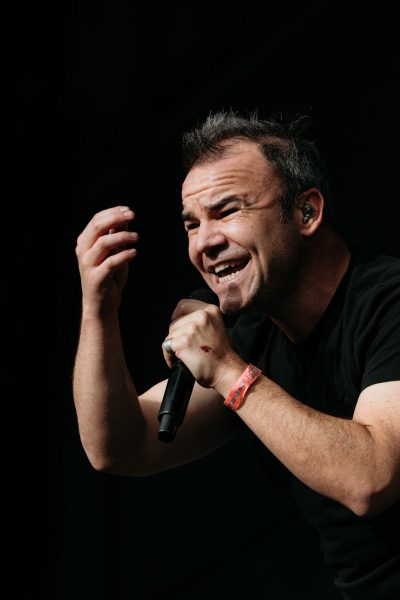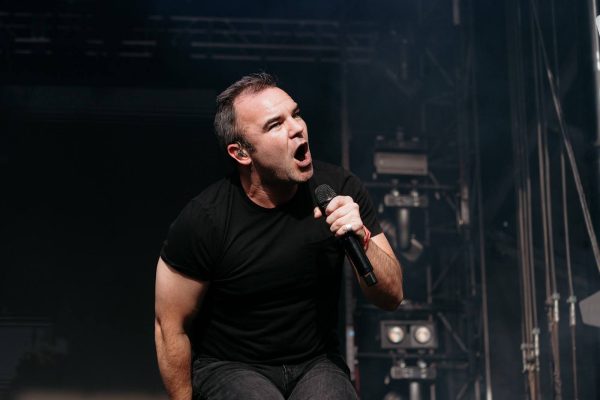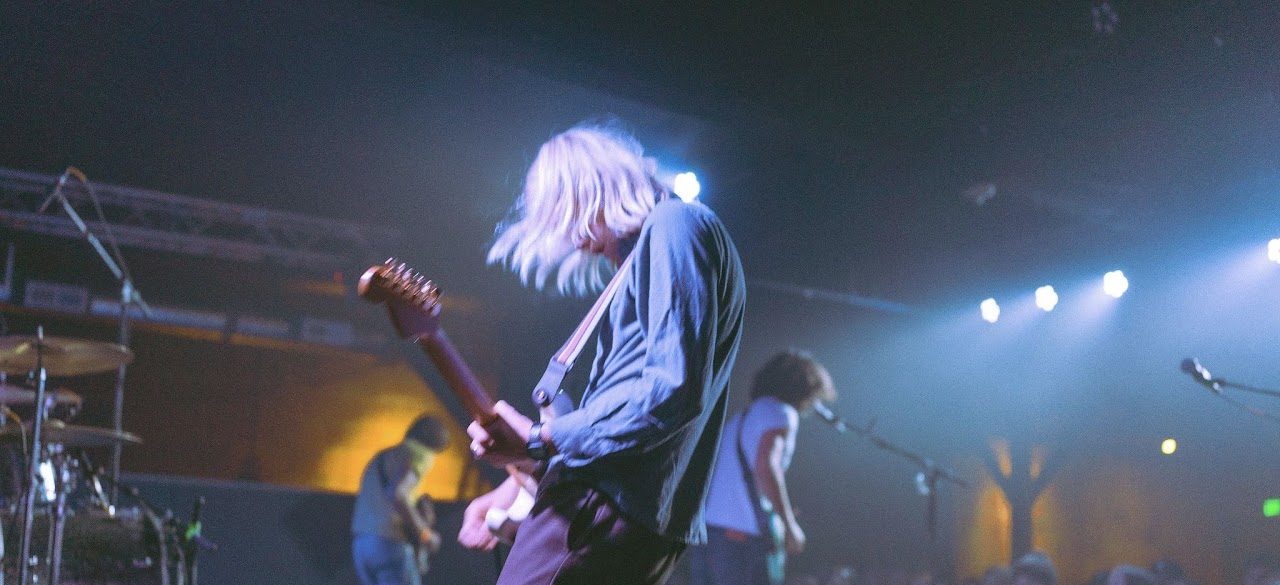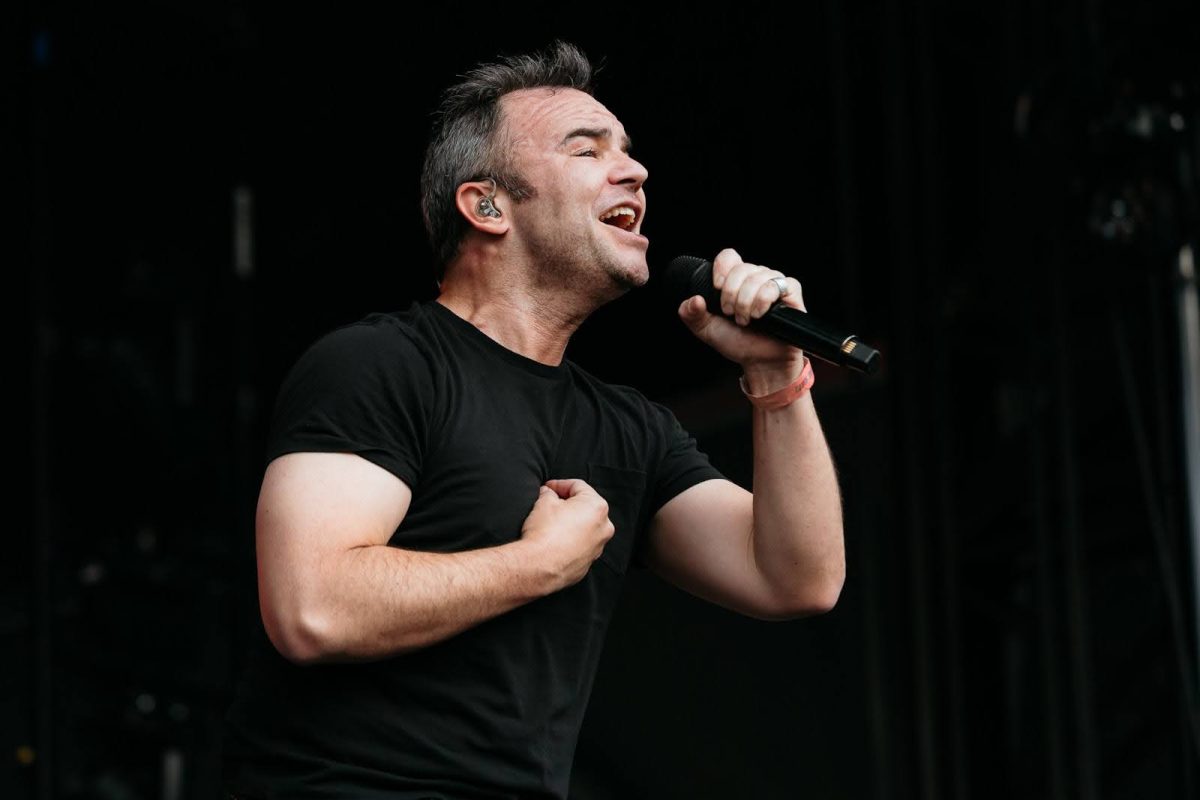Future Islands frontman Samuel T. Herring is no strange to the stage. As he nears 20 years with the band, his live performances have not dulled or been compromised by time, and Future Islands’ latest album, “People Who Aren’t There Anymore,” is one of their strongest to date.
Before their Kilby Block Party (KBP) set, I had the honor to talk with Herring over Zoom about his approach to performing, writing styles and inspiration, and his love for Salt Lake City.
My knowledge of Future Islands was limited before seeing their name on the perfectly curated Thursday lineup for KBP. Ready to do some research, I consulted Google and found their 2014 Letterman performance. The video has over one million views and the performance has drawn much attention to the band since it aired.
I was immediately struck by the passionate and primal nature of Herring’s performance. When I asked about how he approached performing on a stage of a larger scale for a festival like KBP, he said, “I really try to have a four corners approach to performance. I want to touch the four corners of the stage and test the parameters to get to as many faces as I can,” Herring said. “With a festival crowd, there’s a chance that it’s people that have never seen you before and you have a chance to capture their attention and imagination.”
Throughout Future Islands’ set, Herring’s movements and vocal inflections shocked and pulled people like a magnet to the Kilby stage. I was a witness to some confused members of the crowd as they watched him dance around, growl, and physically articulate the meaning of the songs he was singing.
“I think art should be somewhat polarizing, good art at least…it should repulse some people, make people feel… whether that’s a good emotion or a bad emotion,” he said.

Future Islands’ set offered an invitation for people to confront raw emotion and test their tolerance for vulnerability. The band also does this with the songs they write. With every song, Future Islands distills an experience. I asked Herring about his lyrical approach with Future Islands and how he established his poetic and concise voice. “Sometimes I want to be direct, because I feel like that’s rare … I try to use fairly universal ideas, and the simplicity of the language is important to reach as many people as possible.”
Herring also has a solo rap project called Hemlock Ernst, where he says his lyrics are “off the map” with the way he chooses to tell stories and let them evolve. Rap was Herring’s first love when it came to songwriting because he could “expand on ideas and tell stories in great detail.”
He said, “With Future Islands, it’s like, ‘How do you say the most with these eight lines, and bring it together in a chorus?’ It’s like its own puzzle. It can be really challenging at times, but extremely rewarding when I feel like I did it right.”
The band’s latest release continues to chronicle Herring’s life and experience with amplified honesty and immediacy.
“I think it’s our best sounding record,” Herring said. “I’m still finding myself, and that’s life … I think when you share something personal, you realize it’s universal … you realize there’s thousands of people that know the exact thing that you’re talking about.”

It’s artists like Herring who are brave enough to lay it all out bare that are able to challenge and change an audience through their work. Herring expressed his excitement to be a part of the stacked KBP lineup for 2025. He cited New Order as one of the most influential bands for Future Islands, and shared his love for Devo’s originality and eccentricity. Herring also expressed his excitement to be back in Salt Lake City.
“We played Kilby Court in 2009 or 2010…it’s always been a special place, a place that people around the country and the DIY scene talk about and rave about…I remember going there the first time, having heard about this oasis. So, yeah, we’re really excited to be a part of the fest for the first time.”





